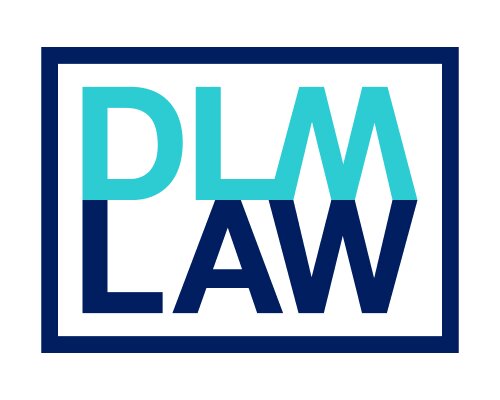Best Employer Lawyers in Kansas
Share your needs with us, get contacted by law firms.
Free. Takes 2 min.
Or refine your search by selecting a city:
List of the best lawyers in Kansas, United States
About Employer Law in Kansas, United States
Employer law in Kansas encompasses the rules and regulations governing the relationship between employers and employees. This area of law covers everything from hiring practices, workplace discrimination, and wage disputes to termination procedures and employee rights. Both state and federal laws apply to employers in Kansas, which means businesses and workers must stay informed of requirements overseen by agencies such as the Kansas Department of Labor and the US Equal Employment Opportunity Commission.
Why You May Need a Lawyer
There are numerous scenarios where legal advice is essential for employers or employees in Kansas. For employers, legal counsel can help ensure compliance with state and federal regulations, draft employment contracts, create employee handbooks, or navigate complex matters like workplace investigations. For employees, legal support is often needed in discrimination cases, wrongful termination, wage disputes, or harassment claims. In both cases, an experienced employment lawyer can offer guidance, represent your interests, and help resolve disputes efficiently.
Local Laws Overview
Kansas follows both federal labor standards and its own unique state laws. Notable local laws and regulations relevant to employers in Kansas include:
- Employment-at-will: Kansas generally follows the employment-at-will doctrine, meaning employers can terminate employees for any lawful reason, with some exceptions for discrimination or retaliation.
- Minimum Wage: Kansas adopts the federal minimum wage for most workers, but some exceptions apply for specific industries and occupations.
- Discrimination Laws: The Kansas Act Against Discrimination protects employees against discrimination based on race, religion, color, sex, disability, national origin, ancestry, or age (40 or older).
- Workers Compensation: Most Kansas employers must provide workers compensation coverage for their employees in case of workplace injuries.
- Unemployment Insurance: Employers fund unemployment insurance that provides benefits to eligible workers who lose their jobs through no fault of their own.
- Wage Payment Act: Kansas law regulates the timing and payment of wages, including final paycheck requirements after employment ends.
Employers should also be aware of recordkeeping, safety regulations managed by OSHA, and leave laws such as the federal Family and Medical Leave Act.
Frequently Asked Questions
What is employment-at-will and how does it apply in Kansas?
Employment-at-will is the general rule in Kansas, which means either the employer or the employee can end the employment relationship at any time, for any lawful reason, or for no reason at all, unless a contract or law provides otherwise.
Are employers in Kansas required to provide written contracts?
No, most employment relationships in Kansas do not require a written contract. However, certain agreements, such as non-compete or non-disclosure documents, are often put in writing to clarify expectations.
What are the protected classes under Kansas discrimination laws?
It is unlawful for employers to discriminate based on race, religion, color, sex, disability, national origin, ancestry, or age (if the employee is 40 or older).
How does overtime work in Kansas?
Kansas generally follows the Fair Labor Standards Act (FLSA). Non-exempt employees must be paid overtime (time and a half) for hours worked over 40 in a workweek.
What is required for final paychecks after termination?
Kansas law requires employers to pay all earned wages to terminated employees by the next regular payday.
Are employers required to provide sick leave or vacation?
Kansas does not require private employers to provide paid sick leave or vacation. However, if an employer has a policy for these benefits, they must follow it consistently.
How are workplace injuries handled?
Most Kansas employers must have workers compensation insurance to cover work-related injuries or illnesses. Employees should report injuries promptly to receive benefits.
Can an employee file a wrongful termination claim in Kansas?
While Kansas is an at-will state, employees may bring a claim if termination was due to discrimination, retaliation, violation of public policy, or breach of an employment contract.
What records are employers required to keep?
Employers must maintain payroll records, hours worked, wage rates, and employment start and end dates for a specified period, in compliance with both state and federal law.
Where can employees or employers file a complaint for workplace violations?
Complaints for discrimination may be filed with the Kansas Human Rights Commission or the EEOC, while wage issues can be reported to the Kansas Department of Labor.
Additional Resources
Here are some helpful resources for employers and employees in Kansas seeking support or information:
- Kansas Department of Labor: Offers resources on wage laws, claims, and workplace safety.
- Kansas Human Rights Commission: Handles workplace discrimination complaints and provides educational materials on civil rights laws.
- US Equal Employment Opportunity Commission (EEOC): Assists with federal workplace discrimination claims.
- Occupational Safety and Health Administration (OSHA): Provides guidelines and investigates workplace safety concerns.
- Local Bar Associations: Many Kansas counties have bar associations that can refer you to qualified employment law attorneys.
Next Steps
If you need legal assistance regarding employer matters in Kansas, start by gathering all relevant documents such as contracts, pay stubs, company policy handbooks, and written communications. Consider the specific issues or questions you have and reach out to a qualified employment law attorney who understands Kansas laws. Schedule a consultation to discuss your situation and possible options. You can also utilize local government agencies or nonprofit organizations that specialize in employment law for additional guidance. Taking action early helps protect your rights and puts you in the strongest possible position for a favorable outcome.
Lawzana helps you find the best lawyers and law firms in Kansas through a curated and pre-screened list of qualified legal professionals. Our platform offers rankings and detailed profiles of attorneys and law firms, allowing you to compare based on practice areas, including Employer, experience, and client feedback.
Each profile includes a description of the firm's areas of practice, client reviews, team members and partners, year of establishment, spoken languages, office locations, contact information, social media presence, and any published articles or resources. Most firms on our platform speak English and are experienced in both local and international legal matters.
Get a quote from top-rated law firms in Kansas, United States — quickly, securely, and without unnecessary hassle.
Disclaimer:
The information provided on this page is for general informational purposes only and does not constitute legal advice. While we strive to ensure the accuracy and relevance of the content, legal information may change over time, and interpretations of the law can vary. You should always consult with a qualified legal professional for advice specific to your situation.
We disclaim all liability for actions taken or not taken based on the content of this page. If you believe any information is incorrect or outdated, please contact us, and we will review and update it where appropriate.
Browse employer law firms by city in Kansas
Refine your search by selecting a city.









